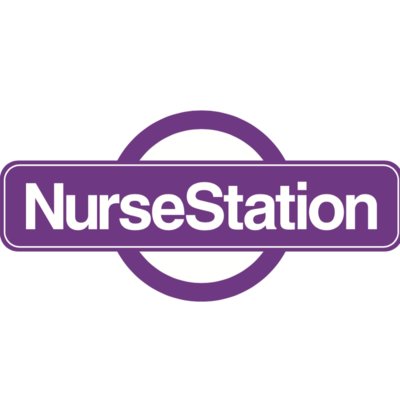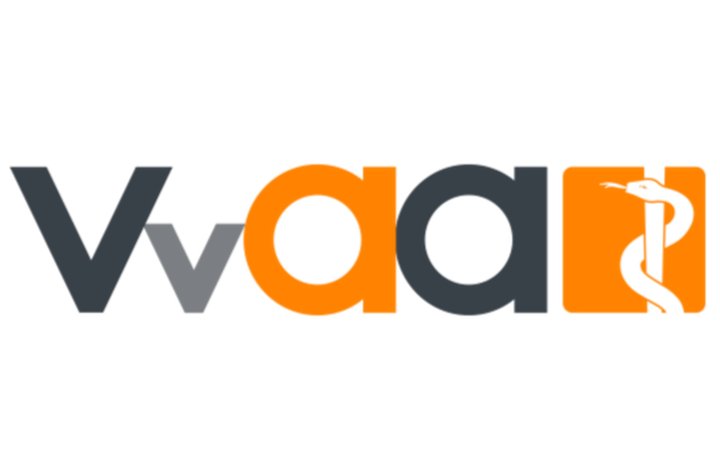KU Leuven 2021
I had always wanted to go overseas to see what medicine was like in a different country, and see how they managed without many resources. It was to be able to see things from another perspective, I think.

The first thing that really made a big impression on me was the lack of privacy. There were no curtains in between the beds. Everything was very open and patients were just lying there.
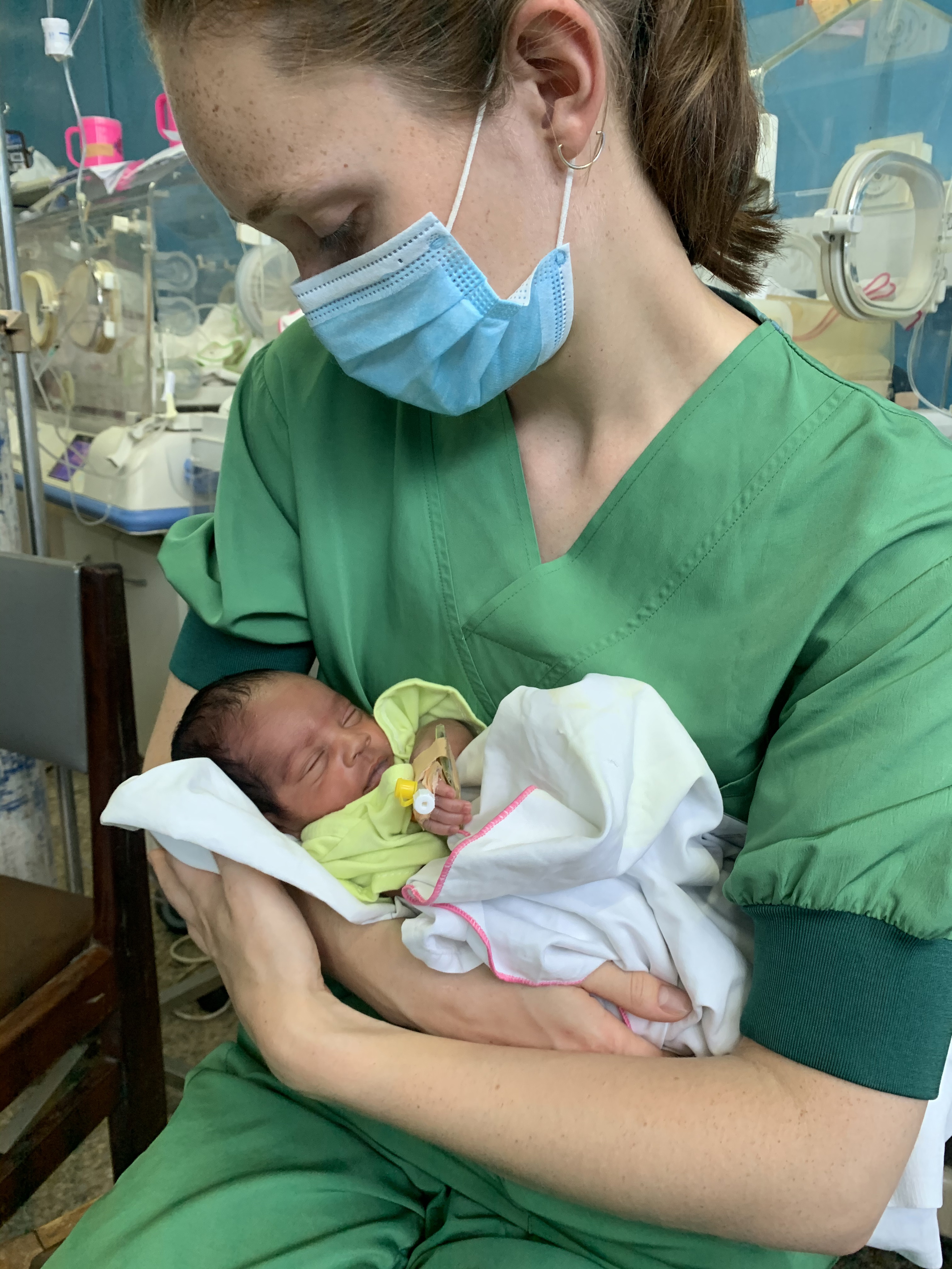 I spent one and a half weeks on NICU and paediatrics, five days on OBG and a couple of days on general medicine.
I spent one and a half weeks on NICU and paediatrics, five days on OBG and a couple of days on general medicine.
On NICU and paediatrics, the biggest differences were around how procedures were done. They weren’t as strict with protocols. One example is reusing needles in different veins.
On my first day in NICU I got to do manual ventilation on a baby. The baby was crashing and had stopped breathing so needed intervention. The local staff had been doing the manual ventilation for about 40 minutes, but the prognosis wasn’t good. The doctor who was doing the ventilation asked me to go and get another doctor, but stopped ventilating the baby while I did so. The sense of urgency in Ghana is completely different from Belgium.
I saw a lot of cases of malnutrition and malaria while I was on those wards, which is not something I normally see It was really eye-opening to see these things.
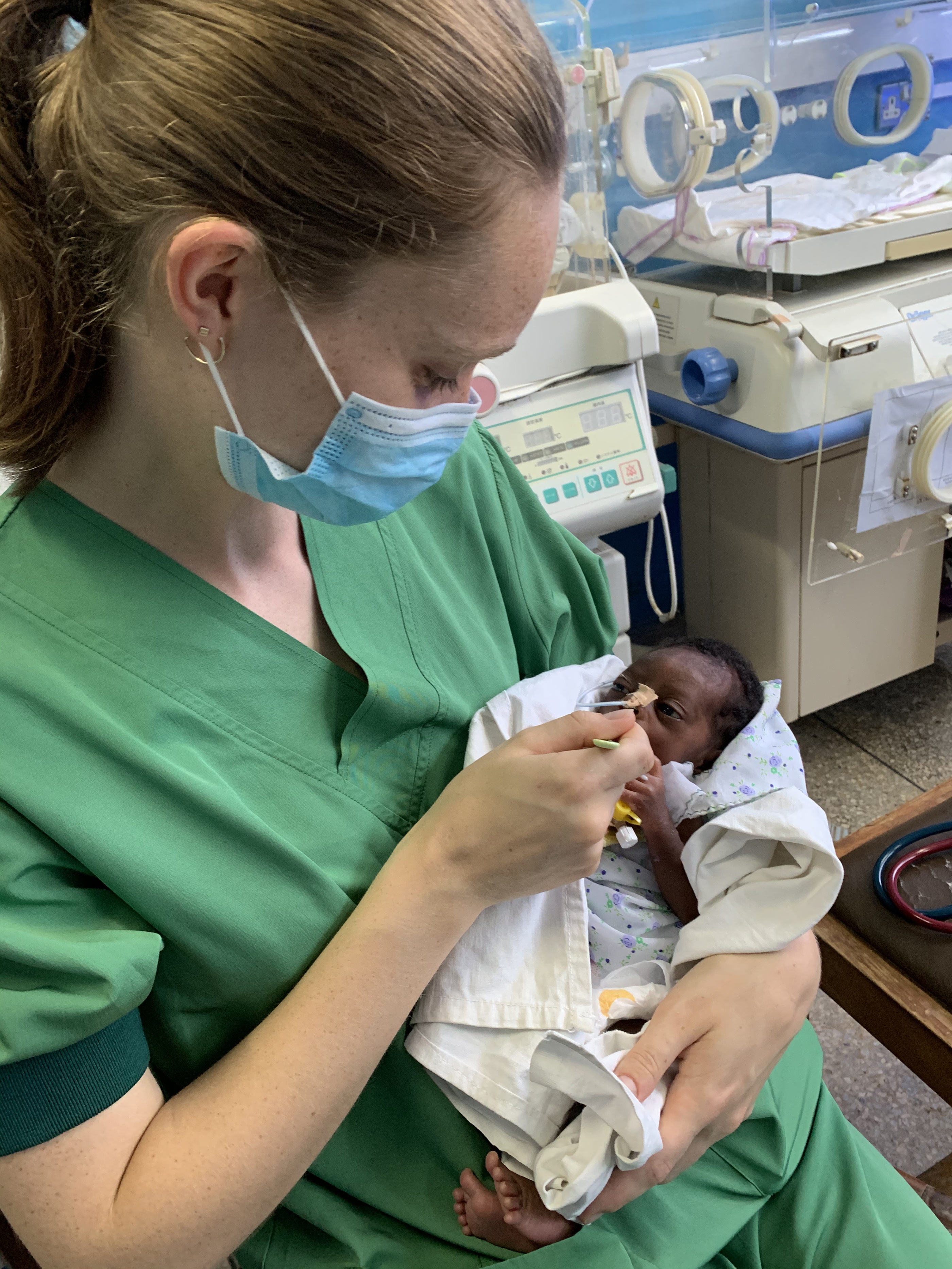 Another difference was that we saw lots of children that were really sick. Back at home, we go to the hospital relatively early on when symptoms present, but in Ghana it was very different. I remember one patient brought their child in only when they’d started coughing up blood.
Another difference was that we saw lots of children that were really sick. Back at home, we go to the hospital relatively early on when symptoms present, but in Ghana it was very different. I remember one patient brought their child in only when they’d started coughing up blood.
At first it was a surprise, but I quite quickly adapted to seeing severe cases. This kind of thing wasn’t uncommon.
In OBG, I saw a really interesting case. It was a 16-year-old girl with an abdominal mass. It had been going on for a year and a half, but she only came in when she started having trouble going to the toilet. The mass was gigantic — about the size of three footballs.
"This huge mass was connected only by one small artery, so there were only 5 snips and the mass was detached."
They removed the mass and, luckily, there were no malignant cells. It was really interesting because this huge mass was connected only by one small artery, so there were only 5 snips and the mass was detached.
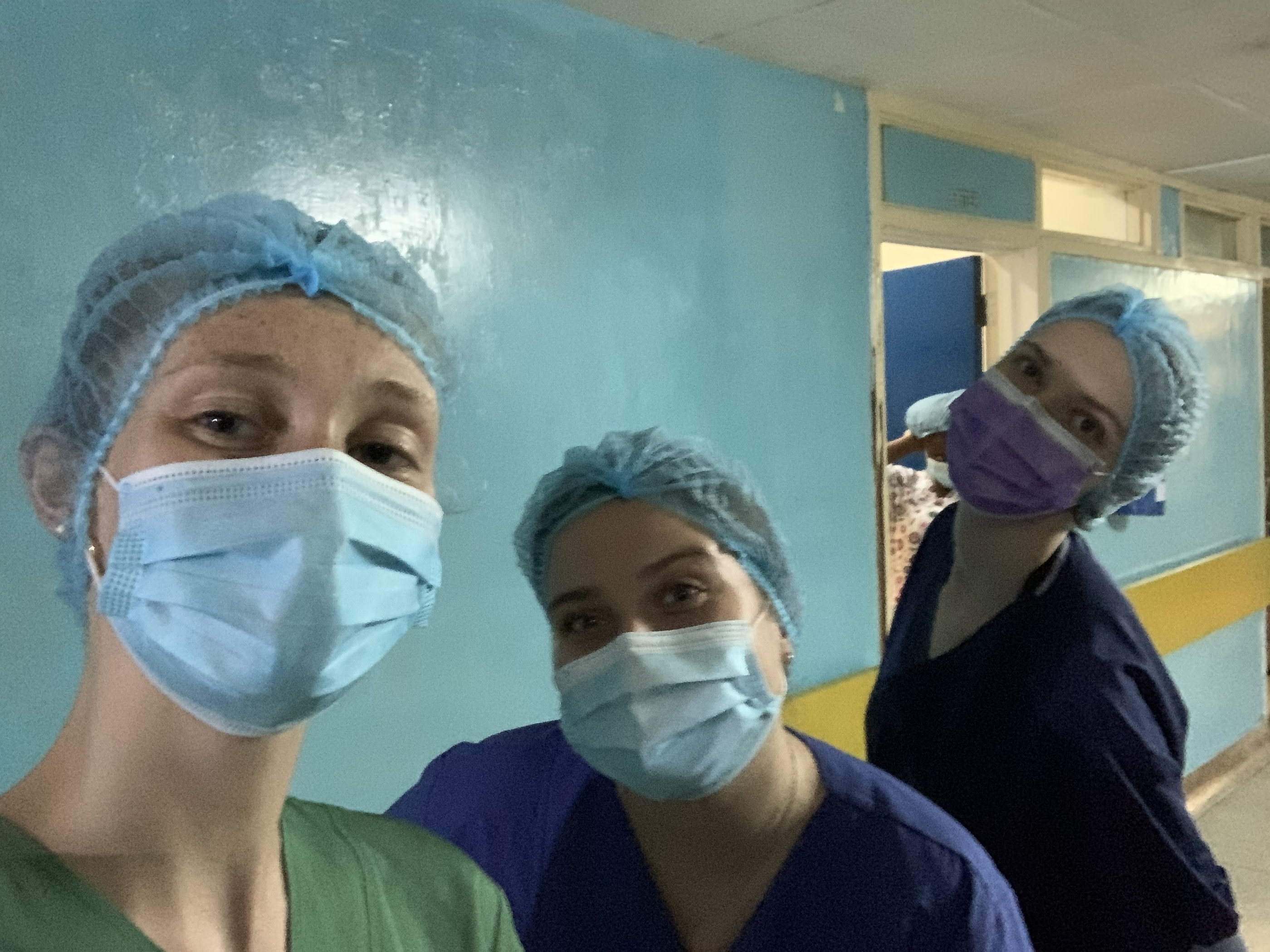
In general medicine we saw lots of different things. Pneumonia was very common, so was diabetes. One diabetic patient had sarcoidosis, which is a lung disease, but also has skin manifestations. The doctors administered a new drug treatment for the sarcoidosis, but because this drug dysregulated the patient’s blood sugar, they also administered another drug that induced hyperglycemia.
I scrubbed in to assist with a C-section while I was there as well. It was a great experience. The doctor who was performing the procedure really involved me, asking me to assist with certain parts, passing instruments and things like that. I got to cut the umbilical cord as well.
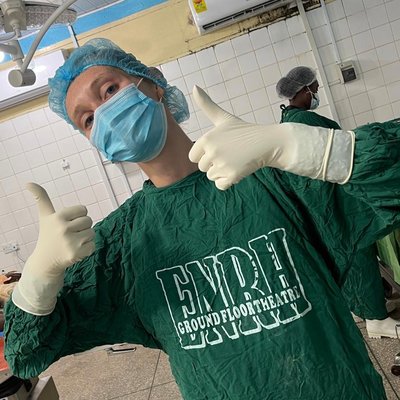
Outside the hospital, it was great living in the Work the World house with students from other areas of healthcare. It was a really good group and we all made friends really easily. Everybody was on the same page, and because most of us had travelled there alone, we really bonded.
Everyone was very social, but it was a supportive environment too because you do see things in the hospital that can be difficult to process. Having other healthcare students to talk to about these things really helps.
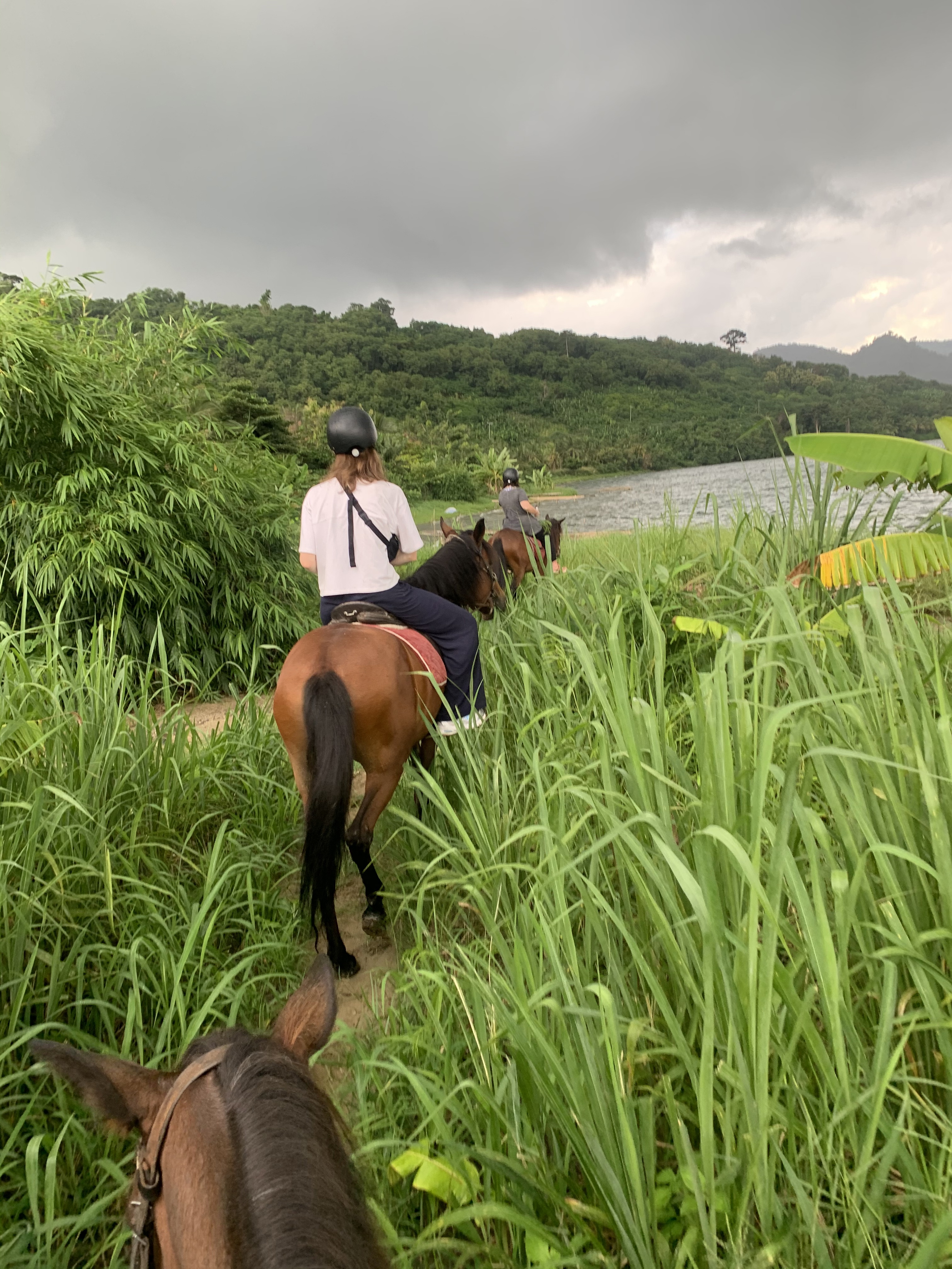
If you were with a host family, it would have been a totally different experience because you wouldn't be able to share the clinical things you see day to day. It was a big plus that we were there living with other students. It helps you debrief and process things — it kept everything positive.
The language lessons in the house were great too. The first lesson was to help us pick up the most important greetings and things like that. Then the following lessons were more flexible and we could ask how to say things we wanted to learn how to say.
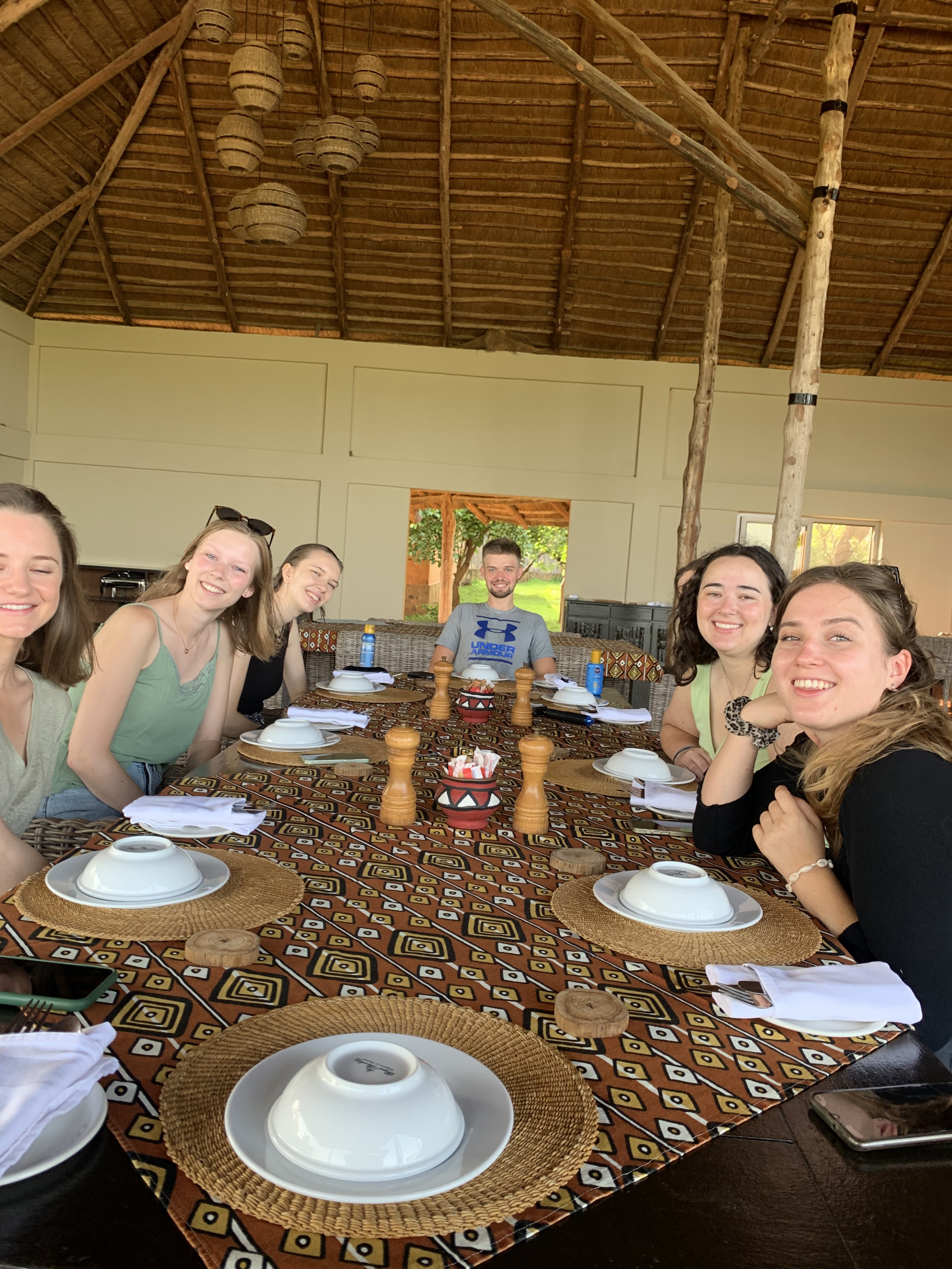
I used a little bit of the local language while I was in Ghana, but I kept to “good morning”, “hello” and “how are you”. That was enough though, because as long as you show you’re making an effort the local people appreciate it.
The people of Ghana were so friendly and open. At first I wasn’t sure what to expect when I got onto the wards, but if you start talking to the local staff and ask them questions they open up so quickly. They’ll involve you more in the medical side of things too, if you make an effort to communicate with them.

A Work the World placement is such an amazing experience. It will make you a more independent and open person and I strongly recommend it.

.jpg)
%2014.webp)
%2022.webp)
